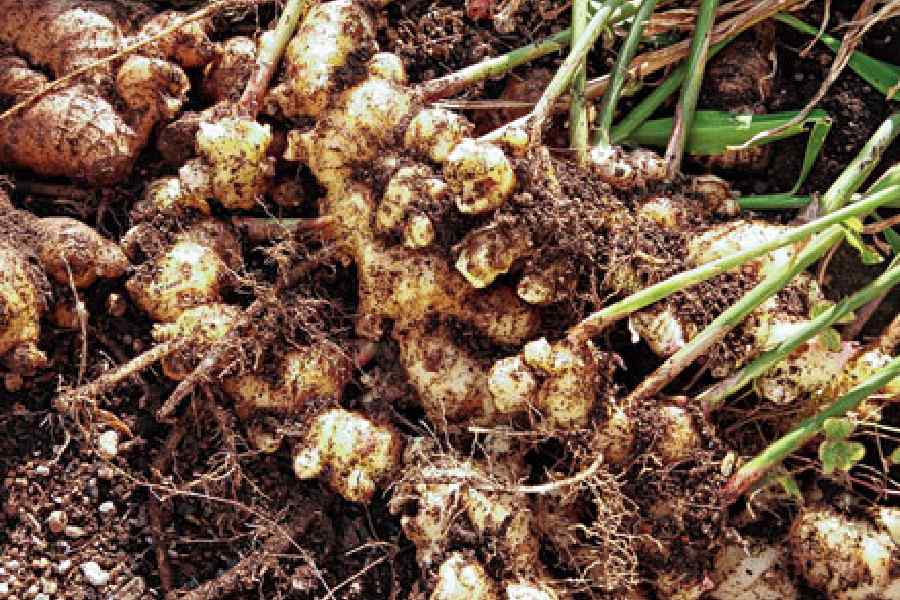Nagaland University researchers have developed a high-yield ginger variety, making it a high-value option for farmers, the fresh produce market and the spice-processing industry.
In a statement issued on Tuesday, the central university said the new variety — SAS-KEVÜ — emerged after nearly a decade of scientific evaluation and extensive multi-location testing across seven All India Coordinated Research Project (AICRP) centres in India.
The new crop variety matures in nine months “fitting seamlessly” into the production cycles of regions where ginger is traditionally grown.
In the Northeast, Meghalaya, Assam, Mizoram, Sikkim and Arunachal Pradesh are major ginger-producing states.
With a yield potential of 17.21 tonnes per hectare, SAS-KEVÜ outperformed the national check variety by more than nine per cent in national demonstrations. Its dry recovery rate of 21.95 per cent offers a strong advantage for processors looking for higher output during drying.
The research project, taken up under the AICRP on Spices, was led by Prof C.S. Maiti and Dr Graceli I. Yepthomi from the School of Agricultural Sciences, Nagaland University.
Prof Jagadish K Patnaik, vice-chancellor, Nagaland University, said: “This landmark achievement is the result of nine years of rigorous, coordinated national trials carried out by our dedicated team of scientists in collaboration with partner institutions. SAS- KEVÜ has been specifically developed to deliver higher yields, improved quality, and greater resilience, offering farmers a reliable variety that can substantially enhance their incomes,” Patnaik said.
The average yield per hectare of existing ginger variety is 9.3 tonne per hectare in Nagaland, 5.8 tonne per hectare in the Northeast while the national average is 9.5 tonne per hectare. On the other hand, the current annual production of ginger is about 492mt in the Northeast, and about 38mt in Nagaland.
According to Patnaik, the release of this variety is expected to strengthen India’s ginger value chain, promote regional agri-innovation, and support the broader national vision for sustainable and profitable horticulture.
Food processing industry users will benefit from SAS-KEVÜ’s moderate oil content and pulpy bold rhizomes, which aligns well with requirements for candy and ginger paste, the statement said.
Prof C. S. Maiti said: “Stability analyses … confirmed SAS-KEVÜ’s ability to perform well across varied agro-climatic zones, particularly in Nagaland, Pundibari in Bengal and Chintapalle in Andhra Pradesh”.
Dr Graceli I. Yepthomi added: “The SAS-KEVÜ is now approved for seed production and agricultural sale in Nagaland, Mizoram, Bengal and Andhra Pradesh.”
The variety is the first crop variety developed by the AICRP (Spices) team from Nagaland University.










